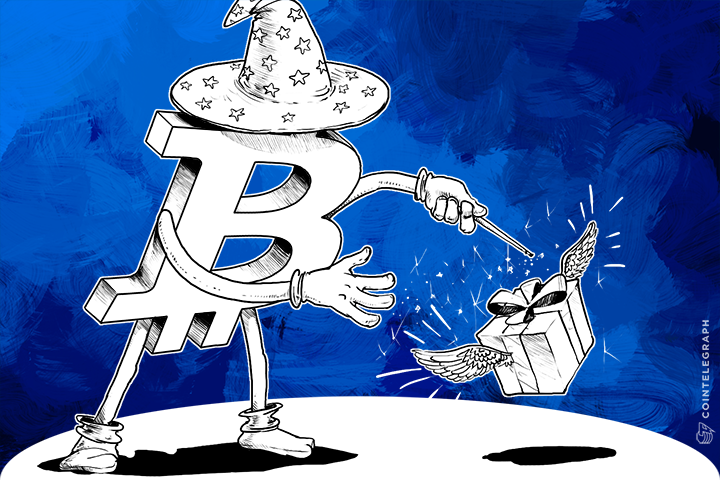Apparently one needs to only text the word “Magic” to (408) 217-1721 anywhere in the U.S., and if it's available for purchase, a new service called Magic will deliver it to your door on demand. All payable with bitcoin.
So long as the goods are “legal,” Magic's founders point out.
Pizzas, beer, groceries, a bouquet of roses for your girlfriend or even a plane ticket are all given as examples of deliverable goods on Magic's home page. Charging roughly a 10 % fee, the service seems to cater to those seeking the convenience of having a personal assistant.
 |
One Reddit user pointed out that he tried out the service and received an US$18 quote for a US$7 Chipotle burrito. Not the cheapest option, some pointed out, but what if you wanted 30 burritos for a party? Or a new computer? Or a truck full of lumber from the hardware store? The delivery charge may not seem like much when you're ordering more.
The Dawn of Decentralized Shipping?
Last year, Open Bazaar developer Brian Hoffman spoke to Cointelegraph. When asked what aspect of life he'd like to see decentralized next, Hoffman replied:
“I'd like to see innovation is shipping and physical delivery. If you can start to innovate here then there's a whole new wealth of opportunities for peer-to-peer trade. It gets really exciting to think about we can continue to decentralize all these huge, monolithic business models.”
While Magic obviously isn't fully decentralized – they are, after all, a central third party – their business model certainly seems a step in the right direction. “Monolithic” businesses like Amazon routinely use only one of three shippers in the U.S. Among the three main shippers, the US Postal Service is heavily subsidized by taxation, while FedEx and UPS are artificially protected by licensing and other anti-competition laws.
Magic, however, seems to be a service apart from the subsidized and the cartelized. (Unless you count the fact that their parent organization, Plus Labs, claims they maintain “government partnerships.” But we'll cut them some slack for the moment.)
Does it all amount to a step in the direction of truly decentralized shipping? Time will tell. And here's a hint: you'll know when shipping and delivery are truly decentralized when there are no more disclaimers about orders having to be “legal.”
Did you enjoy this article? You may also be interested in reading theseones:


